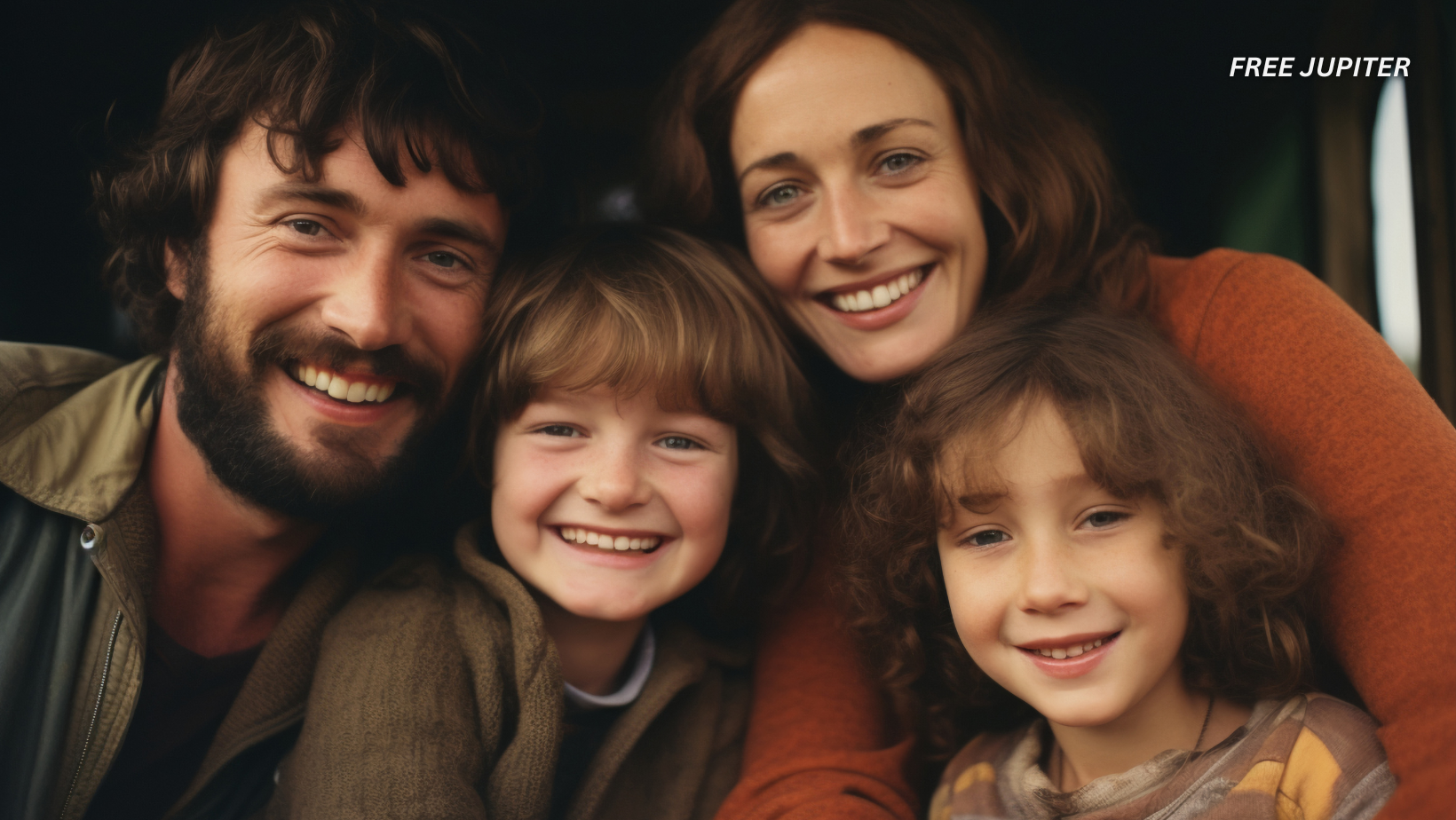Friendly Note: FreeJupiter.com shares general info for curious minds 🌟 Please fact-check all claims—and always check health matters with a professional 💙
Growing up, most of us didn’t realize that the things our parents taught us—beyond the usual “eat your vegetables” or “say please and thank you”—were quietly shaping the adults we’d become. While trends, tech, and parenting styles have evolved, there are some timeless life lessons that never go out of fashion.
If you were lucky enough to be raised with these old-school, character-building values, take a moment to give your parents (or caregivers) a silent high-five. They probably didn’t use fancy parenting apps or books with shiny titles, but they passed on life skills that have stood the test of time.
Here are six “vintage” life skills that might just mean you were raised right:
1. Walking Tall: Confidence Without Arrogance
Confidence isn’t about being the loudest person in the room or winning every argument. It’s more like a quiet inner voice that says, “I’ve got this”—even when you’re a little unsure.
Good parents help build this kind of self-belief by letting their kids try things on their own. Whether it’s tying shoelaces, choosing their outfit (even if it’s a superhero costume in July), or deciding what game to play, these small freedoms matter.
More than praise, what kids crave is connection. When a child feels seen, loved, and supported—through hugs, kind words, and simply being present—they start to believe in themselves. And that belief? That’s what carries them through life’s rough patches.
2. Body Autonomy: Knowing Your Body, Owning Your Space
One of the most powerful lessons a child can learn is this: “Your body belongs to you.”
That might sound simple, but think about how often kids are told to give hugs when they don’t want to, or are fussed over without being asked. While brushing tangled hair or wiping sticky faces comes with the parenting territory, there’s value in asking, “May I help you?” instead of diving in.
When children are given space to say “no” and have it respected, they learn that boundaries are real and valid. This sense of ownership over their own body lays the groundwork for healthy self-respect and protection against future harm.
Research suggests that even very young children begin developing a sense of physical boundaries. Nurturing this awareness from the start helps them grow into adults who recognize when those lines are being crossed—and who feel empowered to speak up.
3. Gut Feelings: Trusting That Inner Voice
Ever get a weird vibe about something or someone, even though everything seems fine? That’s your intuition speaking—and it’s a real thing.
Our brains pick up tons of subtle information beneath our awareness. And sometimes, that inner alarm goes off before our logical mind can explain why. Teaching children to notice and trust those instincts is one of the greatest gifts a parent can give.
Letting kids say, “I don’t feel comfortable” and honoring that—whether it’s about a person, a place, or an activity—helps them stay tuned in to their own safety radar. Even little things, like letting them decide what they want to eat, reinforces the idea that their body and mind know things.
4. Speaking Up: The Power of ‘No’
Kids who learn to say “no” without guilt grow into adults who set boundaries without apology. But that only happens when their “no” is taken seriously.
Too often, children are expected to comply—to share toys, to eat when told, to always be agreeable. But allowing them to make choices, express dislikes, or even argue their point (respectfully!) helps build strong communication skills.
This isn’t about raising rebellious kids—it’s about raising ones who know their voice matters. Including them in family discussions, asking for their opinions, and truly listening shows them that what they say has weight.
Interestingly, studies show that encouraging open expression—especially in early childhood—boosts confidence, creativity, and emotional intelligence. So the next time your child says, “I don’t like that,” don’t shut it down—lean in.
Read more: What ‘Gentle Parenting’ Really Does For Your Kids
5. Thinking Fast: Knowing What to Do in a Crisis
Not all emergencies look like a fire drill. Sometimes it’s getting separated in a crowd or feeling uneasy around a stranger. The trick isn’t just teaching kids to be cautious—it’s helping them know how to act.
Rather than vague warnings like “Don’t talk to strangers,” try scenario-based learning. What should they do if they lose you in the store? Maybe they could find a mom with kids and ask for help. What if someone tries to lure them with candy or puppies? Practice saying, “I need to ask my mom first.”
Role-playing is your best friend here. Turn “what-ifs” into little games using toys or storytelling. Ask them, “What would you do?” and talk through it together.
And remember: kids need to know it’s okay to make a scene if they feel unsafe. Screaming or saying “NO!” loudly isn’t being dramatic—it’s being smart.
6. Standing Strong: Learning to Defend Themselves
Let’s be real—no parent wants to think about their child being in danger. But part of preparing them for the real world is helping them feel strong in their own skin.
Teaching kids basic self-defense—whether through martial arts or a few simple techniques—can be life-changing. It’s not about promoting violence; it’s about giving them tools to protect themselves if the need ever arises.
Beyond the physical skills, self-defense builds confidence. It teaches awareness, boundaries, and assertiveness. A child who feels capable is less likely to be targeted and more likely to speak up or walk away from bad situations.
In fact, a 2021 study showed that kids who took self-defense training were not only better prepared for threats but also developed healthier ways to handle bullying and peer pressure.
And here’s the kicker: They might never need to use those moves—but knowing they could makes all the difference.
Read more: The One Parenting Habit That Is Silently Damaging Your Child
Final Thought: Raising Capable Humans, Not Fearful Ones
Preparing children for the world doesn’t mean turning them into tiny warriors or keeping them in a bubble of fear. It means equipping them with awareness, trust in themselves, and the ability to make decisions with confidence.
If you were raised with these values, your parents didn’t just keep you safe—they made you resilient. And if you’re passing these lessons along to your own kids, you’re continuing a quiet tradition of strength, wisdom, and love.
So here’s to the old-school parenting wins—the kind that don’t go out of style.










